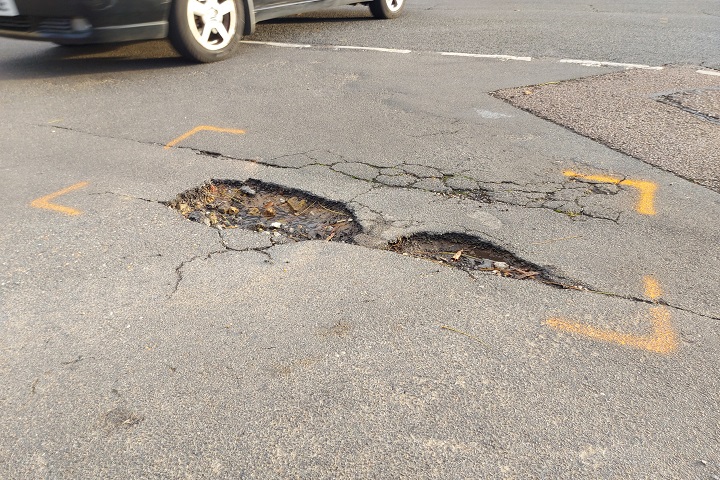
One in every six miles of the local road network in England and Wales – equivalent to 34,600 miles – has less than 15 years’ structural life left, a new report has found.
The 2025 Annual Local Authority Road Maintenance (ALARM) survey was published by the Asphalt Industry Alliance (AIA) on 18 March.
Now in its 30th year, the ALARM report is widely respected as the most authoritative and comprehensive study into local road maintenance funding and condition.
The report highlights the scale of the challenge facing local authority highway teams who have a statutory responsibility to keep local roads safe, but don’t have the funds to do so.
The 2025 report finds that while a pothole has been filled every 18 seconds, every day, for 10 years in England and Wales, the backlog of carriageway repairs has reached new heights at almost £17 billion.
The findings of ALARM 2025, which relate to the 2024/25 financial year, also show that:
David Giles, chair of the AIA, said: “Over £20 billion has been spent on carriageway maintenance in England and Wales over the last decade.
“However, due to the short-term allocation of this funding, it has resulted in no quantifiable uplift in the condition and resilience of the network.
“In fact almost all (94%) local authority highway teams reported that, in their opinion, there has been no improvement to their local network over the last year: a view no doubt shared by the majority of road users.”
Over the past three decades ALARM has reported a repeated pattern of short-term cash injections in an effort to stem the accelerating decline in road conditions, followed by longer periods of underfunding.
David Giles added: “There needs to be a complete change in mindset away from short-term to longer term funding commitments.
“Local authorities do their best with the resources available. Nevertheless, they have told us they need their budgets to more than double for the next five to 10 years if they are going to be able to address the backlog of repairs.
“That is why we are calling on Government, particularly now with a Comprehensive Spending Review ahead, to set a minimum five-year funding horizon and a substantial, sustained increase in investment with budgets ring-fenced specifically for local roads maintenance.”
Survey paints a “bleak picture” – RAC
Reacting to the report, the RAC says all road users “continue to pay the price” for the condition of local roads.
Simon Williams, RAC head of policy, said: “Once again, these figures paint a bleak picture of the state of the nation’s roads and confirm what a majority of drivers have known for a long time – that in far too many parts of the country, road surfaces are simply not fit-for-purpose.
“The lack of investment in our roads is a false economy as it just leads to bigger repair costs in future – something local authorities can ill-afford. In the meantime, all road users continue to pay the price with uncomfortable journeys, avoidable breakdowns and repair bills that they only incur because potholes are so bad.
“We’re committed to working closely with the road maintenance sector, including the AIA, to get the message to government that councils need to have certainty of resources to look after one of their most valuable assets – the roads millions of us use every day.”
Meanwhile, the National Motorcyclists Council (NMC) says the latest ALARM report should act as a wakeup call for the Government.
Craig Carey-Clinch, NMC executive director, said: “In order to support the wider economy, there needs to be a complete change in mindset away from short-term ‘quick fixes’ to long-term funding commitments.
“There needs to be a sustainable long-term funding settlement for Local authorities and in return, local authorities need to commit to road repairs using permanent and precise methods and technologies, with a clampdown on wasteful and inefficient outsourcing, plus proper reporting of progress.
“This is the type of thinking that is needed to create a safer roads environment for motorcyclists and in turn kickstart better local connectivity and growth.”
